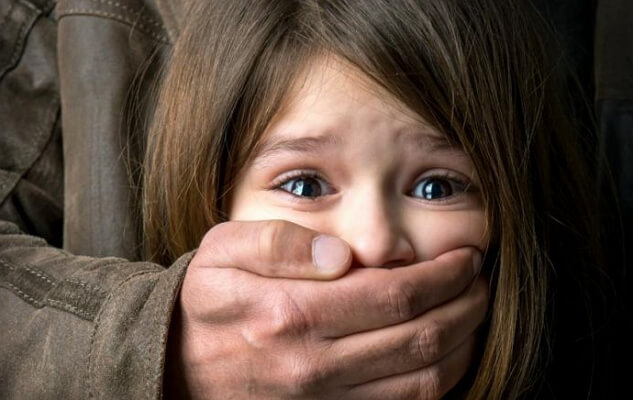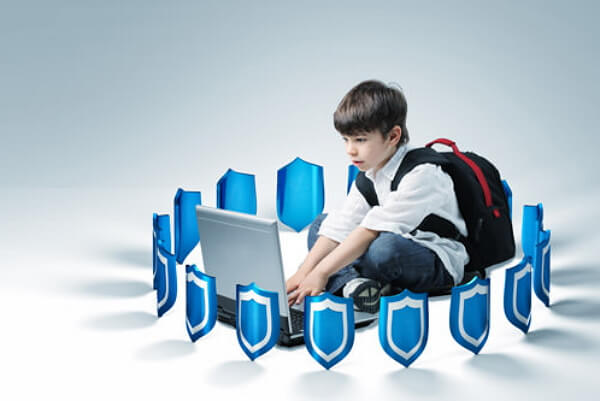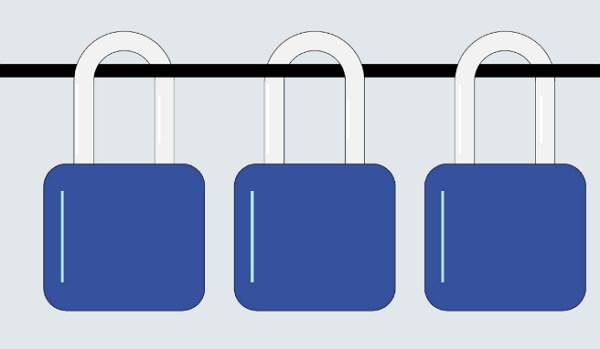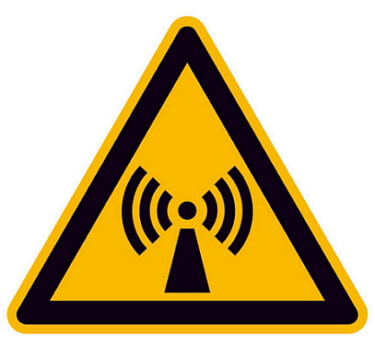MoniMaster Support: Monitor devices with others' permission.
A large percentage of parents who have kids at home have said something similar to the above line. If the internet was not available, there is a very high likelihood that kids wouldn't be as addicted to their phones as they are nowadays. Kids now simply pick up their cellphones to browse random things on the web.
As you probably already know, the internet is not safe. This article will help you promote internet safety for teens at your home. However, before you make an effort to promote internet safety for teens at your home, you would probably want to know the dangers of the internet you will be protecting your kids from. We have outlined these below.

Part 1: Top 5 Dangers of the Internet Your Kids May be Facing Online
Cyberbullying
Maybe you are new to teen cyberbullying. This will have you asking yourself, what is this actually? Simply defined, teen cyberbullying is any unwanted conduct directed to a kid or a minor by another minor. This conduct is constantly repeated over time and causes a negative effect on the target kid physical and mental health or even the kid's academic performance.
Just like the name teen cyberbullying suggests, this conduct happens online. This means that the people behind teen cyberbullying leverage the power of the internet and social media channels such as Facebook, Twitter, and Instagram to make nasty comments about your kid. As we had noted earlier on, teen cyberbullying is not something that any guardian is supposed to take lightly. The best thing you can do is try and stop the cyberbullying. The question is, how exactly do you stop teen cyberbullying?

Sexual Predators
An online predator is an adult who uses the power of the internet to exploit vulnerable kids and teenagers for sexual or any other abusive purpose. An online predator will use the internet, communication technology, and information to target, locate and then victimize minors.
Child predators usually frequent chatrooms, social networking sites and also use the instant messaging apps to meet and flirt with minors. Their major goal when engaging in the flirtatious activities with kids is to meet them and engage in sexual activities. Some online predators may not plan on meeting their target but instead, they may manipulate the kids into engaging into some form of online sexually provocative activities. These are the kinds of child predators who focus on selling children pornography.

Signs that An Online Predator Is Approaching Your Kids
After realizing that online predators do actually exist, you would probably want to know the signs which can tell you whether your kid is dealing with a child predator. While the list of signs outlined below is not exhaustive, the signs listed below are the most common in kid's dealing with an online predator:
1. Your kid might be spending too much time on Facebook. Therefore, this is not a sure sign. However, if all of a sudden, your kid starts spending significantly more time online, you need to check to make sure that a child predator is not trying to manipulate him or her.
2. If you start noticing that people you do not know are contacting your kid, you need to determine who these people are. Online predators can use any communication method to reach your kid. They can call, send emails, or even use text messaging.
3. If your kid's laptop was always clean but then, all of a sudden, explicit photos and even videos start showing up, you need to be concerned. Your kid may be communicating with a child predator. Even if your kid is not communicating with an online predator, talk to the kid. Watching pornography can still harm his or her life.
4. If you notice that your kid is constantly deleting the browsing history on his or her browser, using private social media accounts, and secret email addresses, you have to be concerned. The kid may be following instructions originating from a child predator.
5. While kids love their privacy, excess caution is not a good sign. If when you approach your kid the iPhone disappears from his hand and he even pretends to have been doing other things, you need to determine what is actually going on with your kid.
6. When your often-cheerful kid becomes less talkative and appears to be anxious and stressed, you have to find the reason as to why this is happening. Online predators can stress your kid.
Online Child Grooming
Grooming a child involves a really shady person engaging your kid so that he or she can prepare the kid for a sexual activity at a later date. Online grooming will generally involve the child predator communicating with your kid in order to create a connection with the kid. The sex predators will even go overboard with the child grooming and try to befriend the kid's parent or guardian. While it can be hard to identify when someone is grooming a child, there are some pointers which could tell you that child grooming is actually happening. So, what are these child grooming signs?

While the child grooming signs may vary, they all revolve around the ones we have outlined below:
- Seeking out your kid – The sex predator grooming a child will always try to get to your kid. He or she will use any form of online media to get to the kid. The groomer will pay your child extra attention.
- The groomer will act overly interested in your child.
- The sex predator will take online grooming to the next level and even start buying your kid treats and gifts. This might seem impossible to you, after all, it is online grooming, right? However, you will be surprised to realize how easy it can be to send someone money from anywhere in the world.
- If the groomer has access to the kid, he or she will touch the kid in front of trusted family members. This makes the kid think that touching adults is okay.
- Grooming a child involves determining what the kid likes and then the groomer pretending to have the same interests and likes.
- If again the groomer has physical access to the kid, he/she will try to be alone with the target kid. The groomer will even offer to babysit.
- The groomer will tell your kid dirty jokes or even show him or her pornography.
Adult Content
Pornography is one of the most common dangers of the internet, especially for teenagers. There are probably millions of websites on the web hosting pornographic content. Adult content will not only mess up your kid's morality. It will also mess their relationships as grown-ups.
Data Theft
Fraudsters are everywhere. They will steal your kid's important data including addresses, financial data, names etc. Fraudsters will either sell this information or use it for their own personal gain. Data thieves will use the websites your kids frequent to install spyware on your kid's device. They can easily operate under your kid's identity after stealing his or her personal data.
Part 2: How to Keep Your Kids from Dangers of the Internet

Now you know that the dangers of the internet and the dangers of social media are real. The next question you will ask yourself is "how do I promote internet safety for teens in my home?" We answer this question below:
Use Parental Controls
Generally, all devices which can access the internet will have parental controls. Make use of these to keep your kids safe. You can block their access to websites which contain adult content and any other information that can harm them.

Activate Privacy Features on Social Media
To protect your kid from the dangers of social media, you can activate the privacy features available on the social networks. These will keep strangers from viewing your kid's photos and status updates. This may help keep sexual predators away from your kid.

Keep Screens in Common Areas
For example, you can confine all computers and devices which can access the internet in the living room. This will help you protect your kids from the dangers of the internet since you can monitor their internet usage more easily.
Set Tech Limits
Make specific times tech-free. For example, when your kids go to bed, make sure they don't carry their iPhones with them. They will use their devices at night to check out stuff they cannot check when you are around.
Turn Off the Internet
If you are bothered about who your kids are using the internet to talk to, you can easily limit access to the internet. You can turn off the internet when your kids are at home alone in order to make sure they do not use it for the wrong purposes.

Educate Your Kids
Sit your kids down and talk to them about the dangers of the internet. Having a deep conversation with your kid will help them realize that you are trying to help them be safe. Turning off the internet and using internet controls will not work as effectively as parental advice would. Encourage your kids to talk to you when they encounter questionable situations on the internet.

Part 3: The Best Parental Controls Tool to Better Protect Kids Online
Our last tip on how to promote internet safety for teens in your home encourages you to talk to your kids. If you have to give your kids advice on internet usage that will help them be safe, the advice has to be relatable. This means that monitoring is required beforehand. While you can install a spyware on your teenage kid's devices, this is not a good idea if you would like to maintain a great relationship with the kid. A better idea would be to monitor your kid's iOS device using a third-party remote monitoring tool.
MoniMaster, previously named Spymer, is the third-party tool parents have been using to monitor their kid's tech use remotely. The tool works without having to be installed on the target device. MoniMaster lets you check your kid's Safari browsing history and also how they are using social media applications. The tool will give you access to up to 17 apps. It will allow you to see who your kid is contacting the most, the data available on the kid's iOS device, and the kid's location and location history.

Summary
This article shows you how to protect your kids from the dangers of the internet. While there are other ways to promote internet safety for teens, parents report that parental guidance works best. MoniMaster allows you to monitor your kid's internet usage so that you can offer relatable parental advice.
















